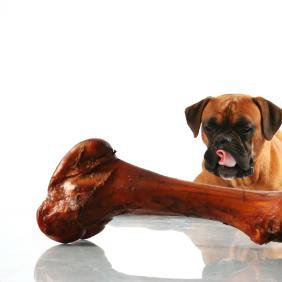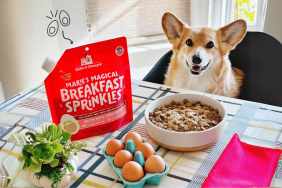Despite their growing popularity, raw food diets for your dog may actually pose a threat to your dog’s health. According to a study published in the November/December 2003 issue of the Journal of the American Animal Hospital Association, raw foods can be a source of the potentially deadly Salmonella infection.
Link Welborn, DVM and former AAHA president, says, “While raw food diets are becoming increasingly popular among pet owners, there is a growing body of information showing that these diets pose a health risk not only for the pets that consume them but to their owners as well.”
Three researchers from the University of Georgia College of Veterinary Medicine studied the case of two cats who developed a Salmonella infection after eating a raw meat-based diet. They suffered gastrointestinal upset with loss of weight and appetite. Both cats died. Salmonella in tissue cultures from one of the cats was identified as the same Salmonella found in the raw meat used in the cat’s homemade diet.
The JAAHA study also showed documented cases of human Salmonella infection resulting from direct and indirect contact with infected pets, though most were due to contact with contaminated food. Salmonella infection can be acquired from pets through grooming, food preparation, scooping, cleaning bowls and litter boxes, or just petting. In pets and humans, the very young and the very old, as well as those with suppressed immune systems, are most at risk.
The study strongly suggests that pets fed a raw diet contaminated with Salmonella can develop salmonellosis and pass it on to their handlers. Documentation of Salmonella recovered from the feces of greyhounds and sled dogs eating Salmonella-contaminated meat indicates risk of human infection from contact with infected dogs.
Talk with your veterinarian about a nutritionally balanced diet that is appropriate for your dog. He will make recommendations based on scientific nutritional information that will help your dog live a long and happy life.
Source: Adapted from the American Animal Hospital Association









